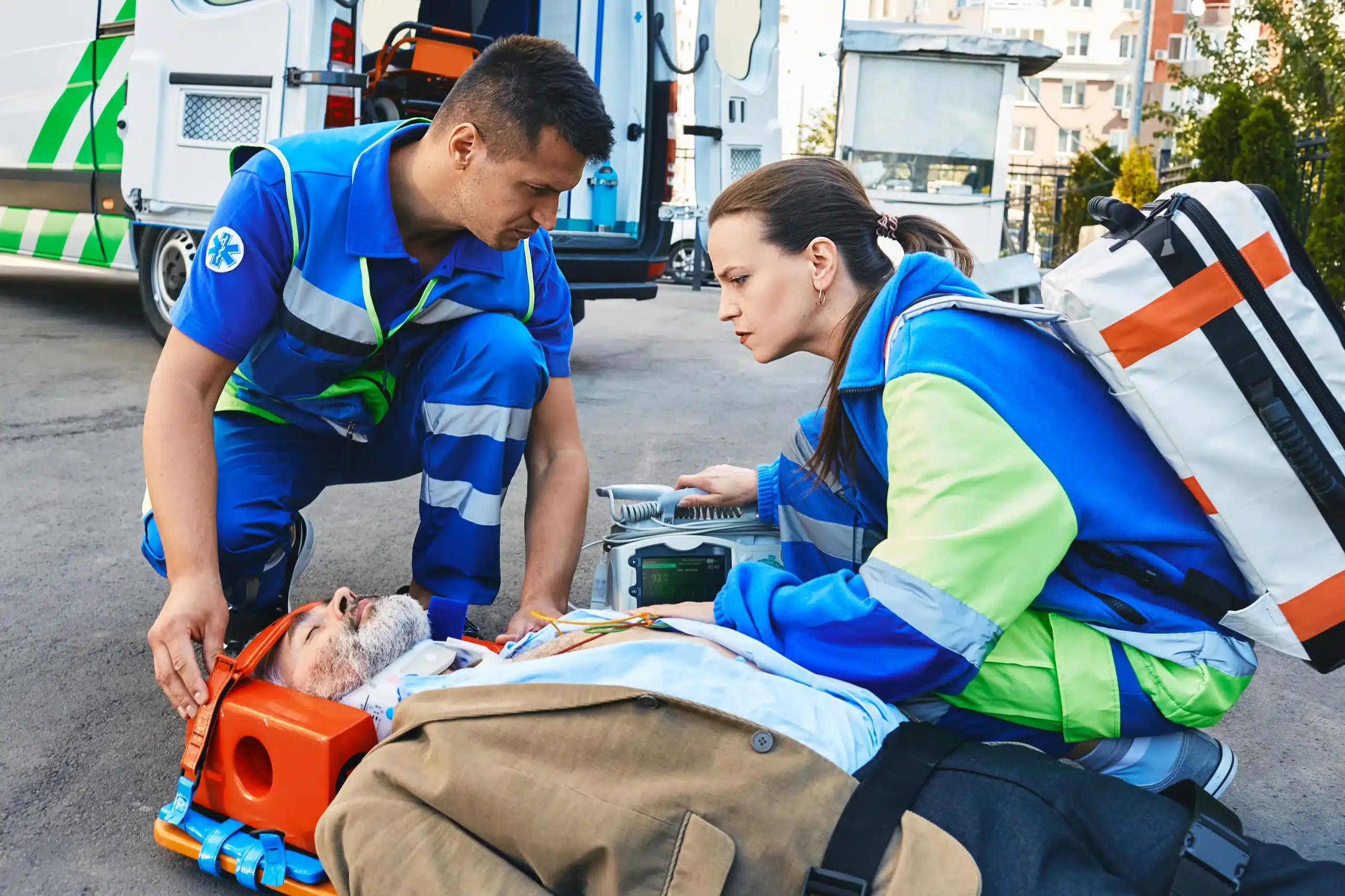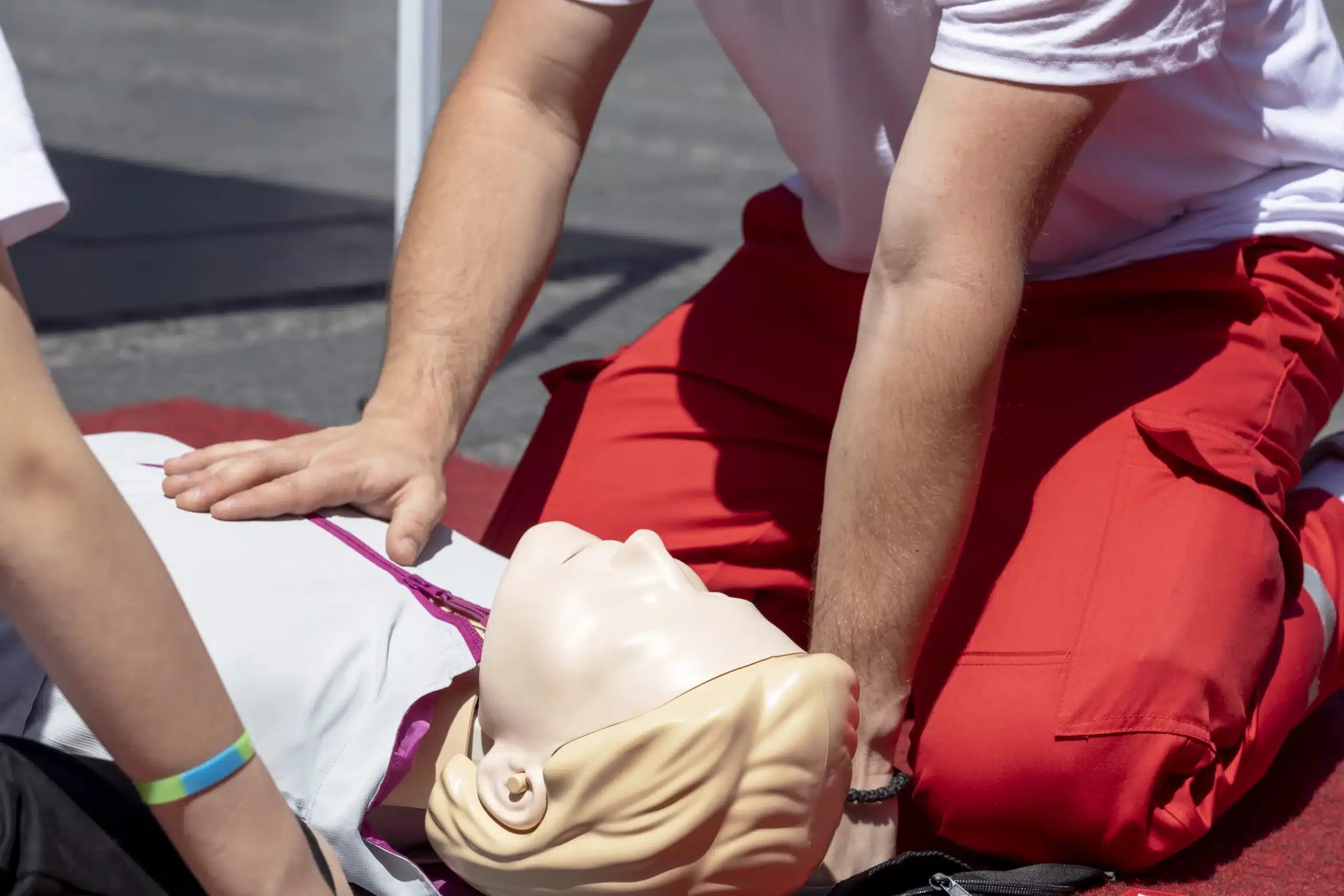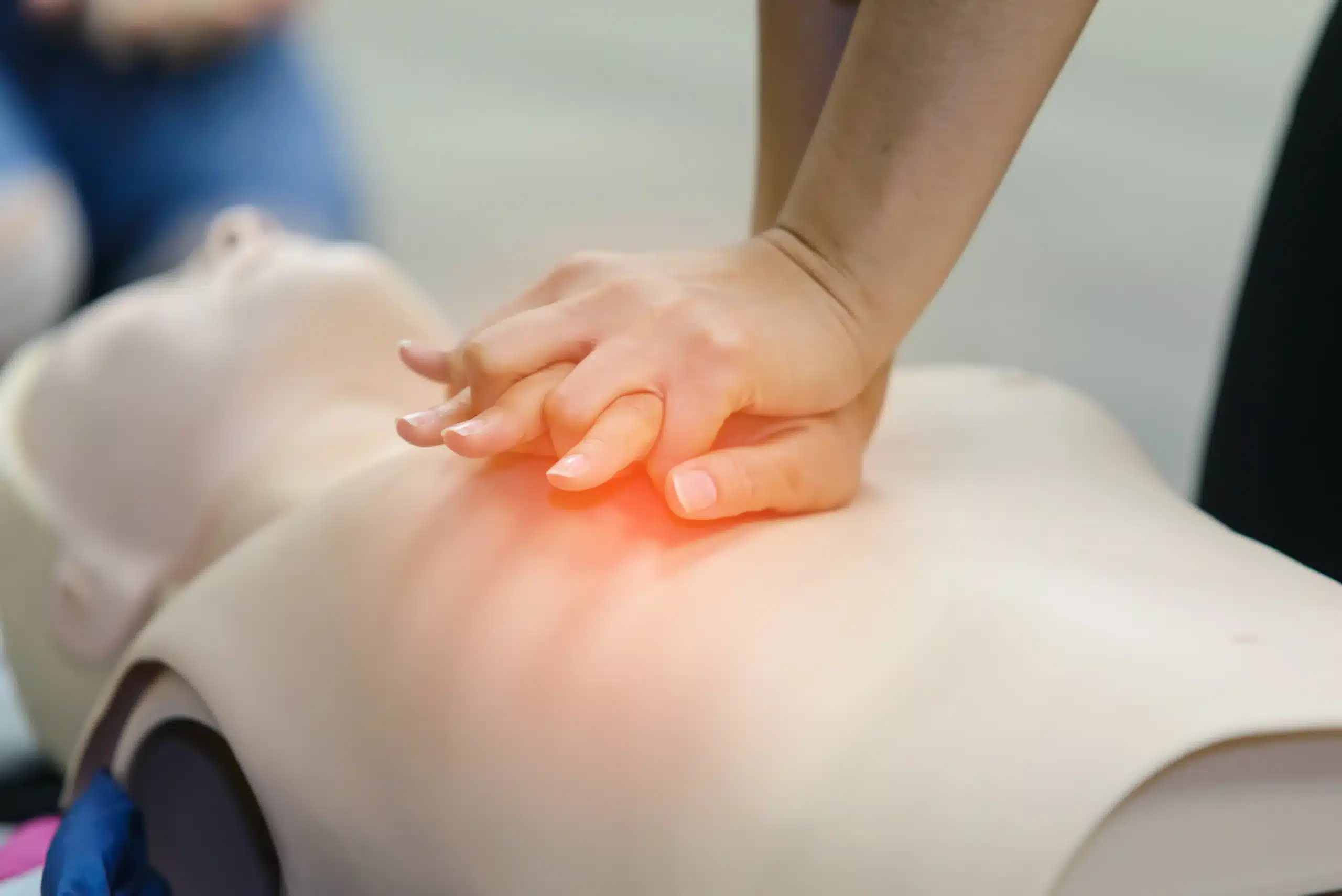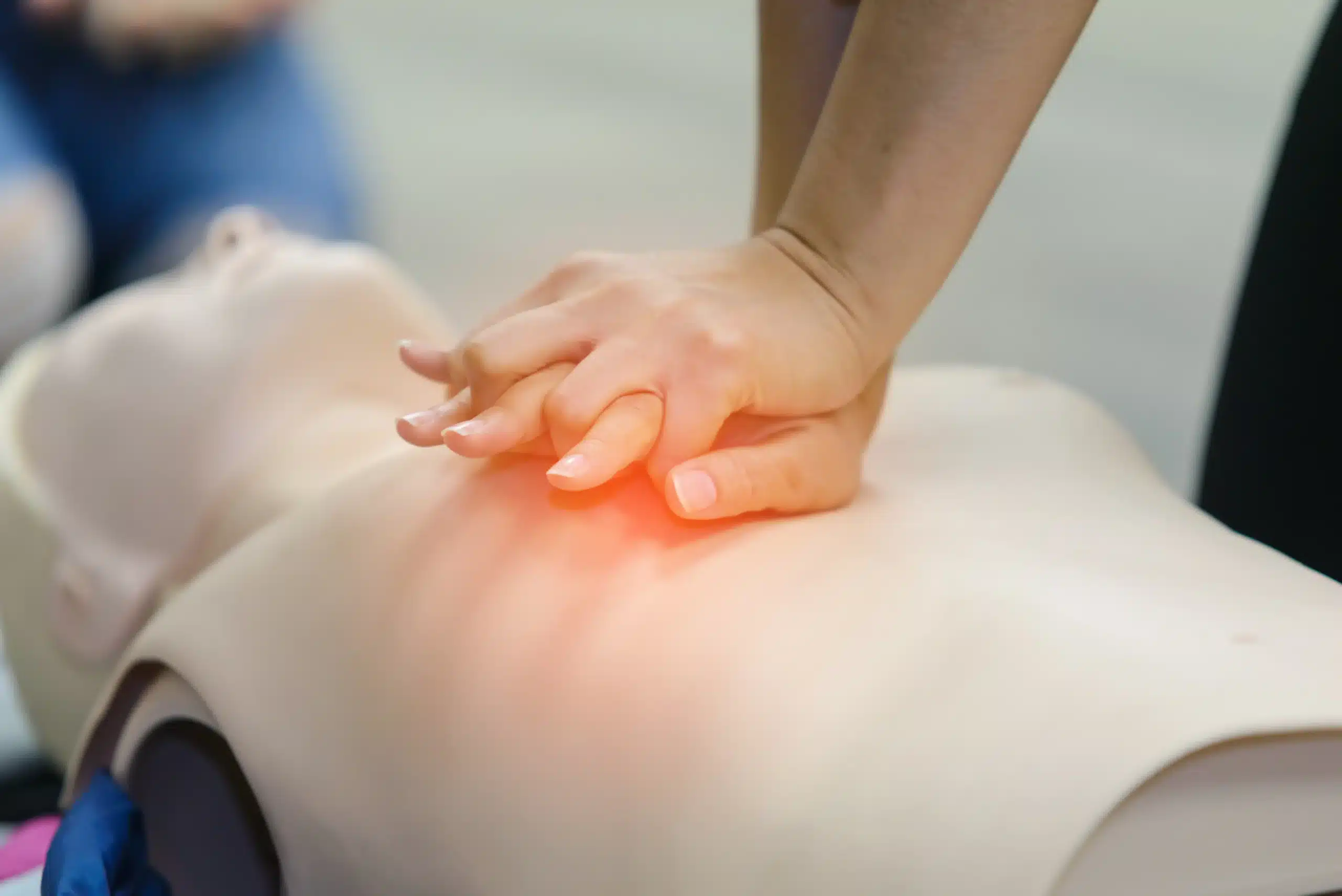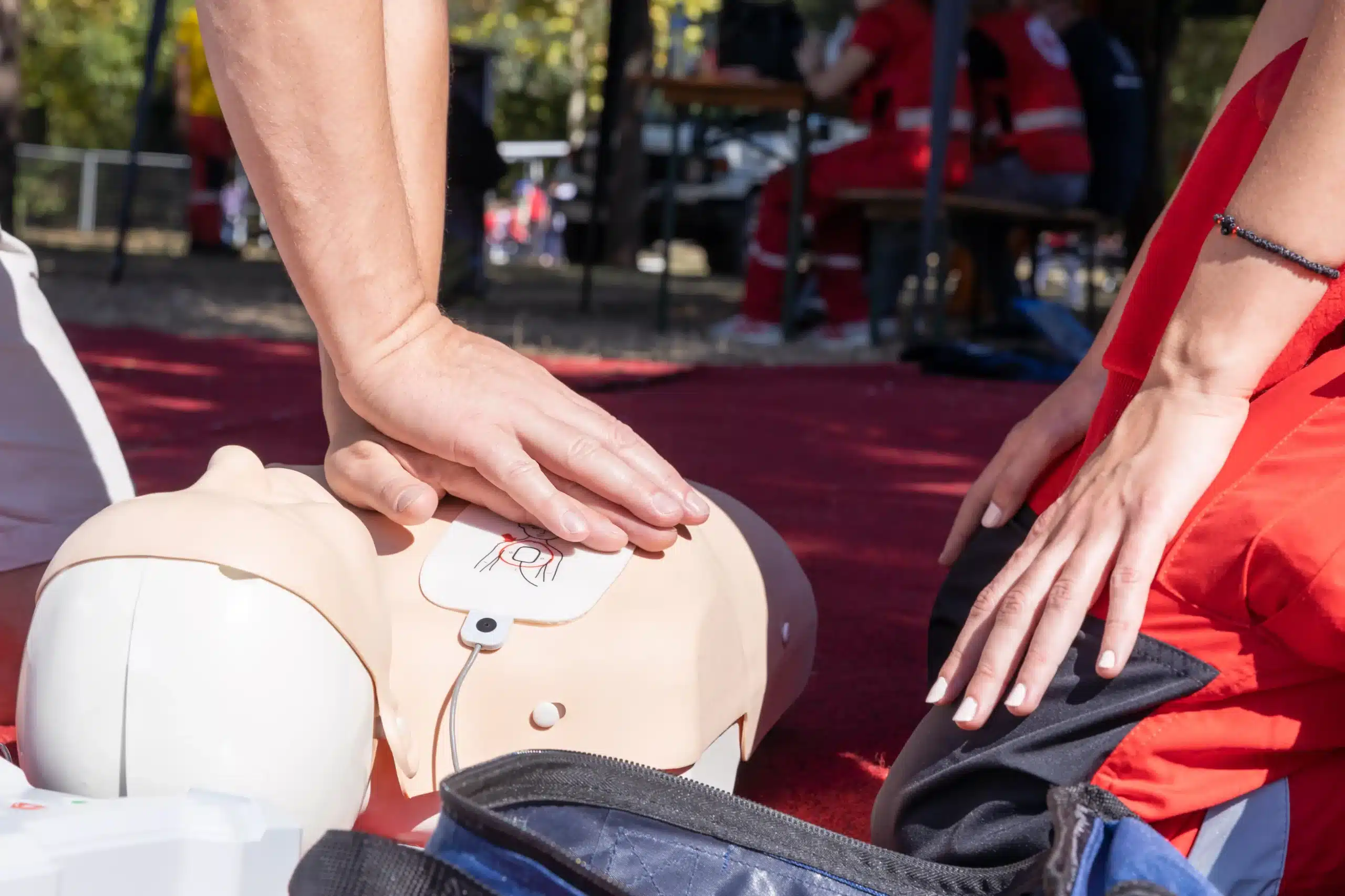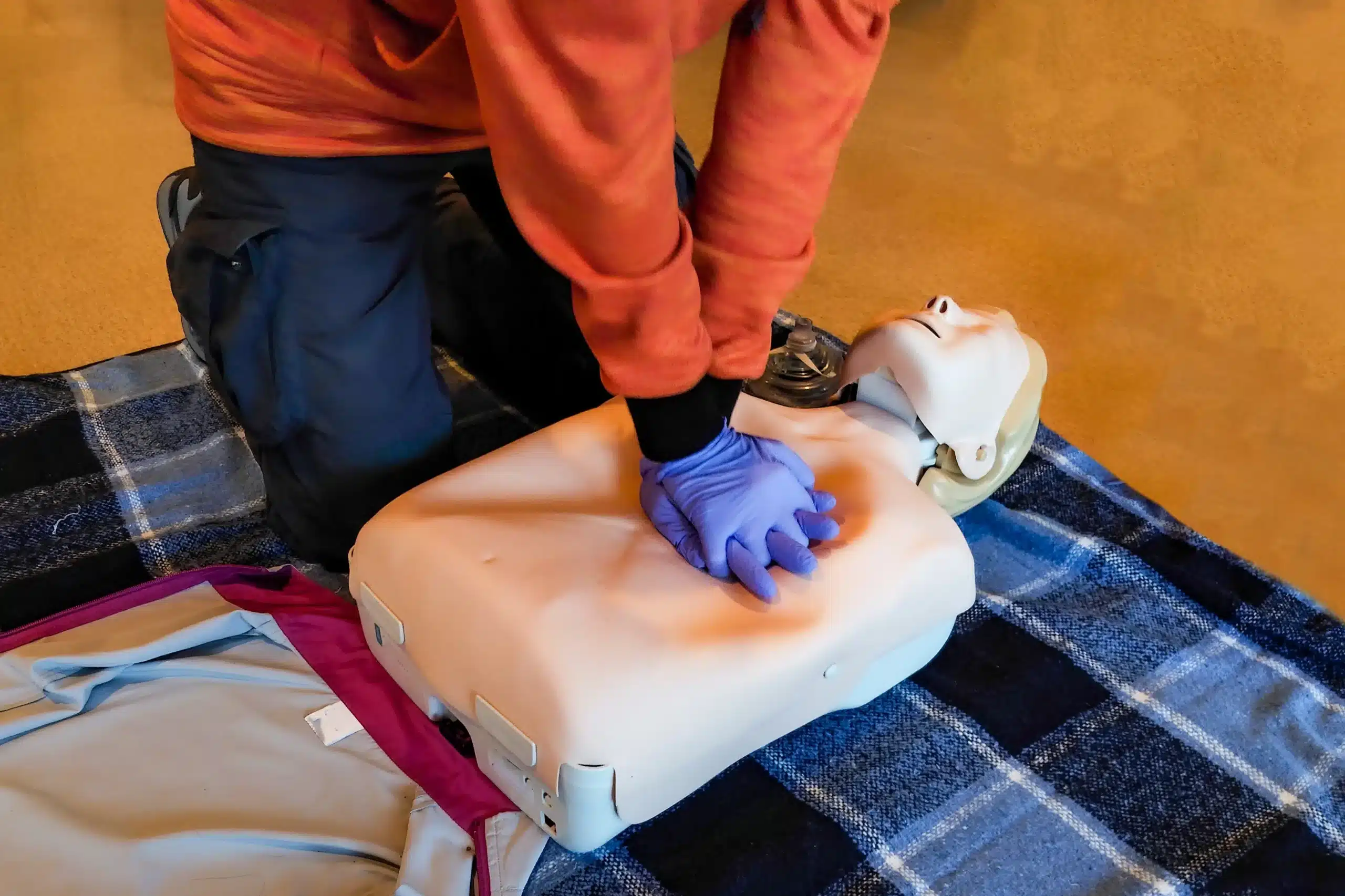Thinking about getting your ACLS certification in Palo Alto? Excellent choice! This post is your one-stop resource for all things ACLS. We’ll cover what the training involves, where to find reputable providers in Palo Alto, the costs involved, and the significant career advantages it offers. We’ll also delve into the importance of advanced cardiac life support in Palo Alto and how it contributes to a more prepared and responsive healthcare community. Whether you’re looking to advance your career, meet professional requirements, or simply enhance your skills, this guide will provide valuable insights into the world of ACLS.
Key Takeaways
- ACLS is essential for healthcare providers: It equips you with practical skills to manage complex cardiac emergencies, directly impacting patient outcomes. Choose an AHA-certified course with hands-on training and up-to-date guidelines.
- Select the right ACLS course based on your needs: Consider online or in-person formats, provider reputation, and certification or recertification requirements. Convenient scheduling and location are important factors for busy professionals.
- ACLS certification advances careers and strengthens the community: It opens professional doors, fulfills requirements, and contributes to a better-prepared healthcare system. Regular renewal ensures you stay current with the latest life-saving practices.
What is Advanced Cardiac Life Support (ACLS)?
What is ACLS?
ACLS is a set of medical guidelines from the American Heart Association (AHA) for treating serious heart problems that lead to or have caused cardiac arrest. It builds upon the foundation of Basic Life Support (BLS) skills, adding advanced procedures and medications to manage respiratory and cardiovascular emergencies. Think of it as the next level of emergency cardiac care. For more information on BLS, check out our BLS Certification page.
Who Needs ACLS Certification?
ACLS certification is essential for healthcare professionals who regularly encounter cardiac emergencies. This typically includes physicians, nurses, paramedics, and other medical personnel working in emergency rooms, intensive care units, and other critical care settings. Anyone who might be called upon to respond to a cardiac arrest or other serious heart issue will find ACLS training valuable. It equips you with the knowledge and skills to provide timely, effective interventions. We offer ACLS training in Palo Alto, Redwood City, and Menlo Park.
Common ACLS Training Misconceptions
One common misconception is that ACLS certification lasts forever. In reality, ACLS certification requires renewal every two years. This ensures healthcare providers stay up-to-date with the latest advancements and maintain their skills. Another misconception is that ACLS is just CPR. While CPR is a crucial part of ACLS, the training covers a much broader range of interventions, including medication administration, airway management, and electrocardiogram (ECG) interpretation. Our RQI courses streamline the recertification process. For groups, we offer CPR discounts.
Top ACLS Training Providers in Palo Alto
Finding the right ACLS training provider is crucial for healthcare professionals. Here are some reputable options in Palo Alto:
Safety Training Seminars
Safety Training Seminars offers a comprehensive range of life support courses, including ACLS, BLS, PALS, and CPR. They are certified by the American Heart Association (AHA) and pride themselves on convenient scheduling, with classes offered daily from 8 am to 10 pm. This flexibility makes it easier for busy professionals to fit training into their schedules. For organizations, Safety Training Seminars offers group discounts, making it a cost-effective choice. Their commitment to quality training at affordable prices makes them a popular choice.
Stanford Health Care
Stanford Health Care’s Life Support Program provides comprehensive ACLS training as an AHA-authorized training center. This ensures medical professionals receive high-quality education and hands-on experience essential for effective emergency response. Their program focuses on equipping participants with the skills to manage cardiac emergencies.
Palo Alto CPR Classes
Palo Alto CPR Classes specializes in ACLS training designed for healthcare providers. Their courses cover essential knowledge and skills for managing advanced cardiac life support situations. The training follows the latest AHA guidelines, ensuring participants are prepared for real-world scenarios. For more flexible learning and skills validation, they also offer the RQI program.
Bay Area CPR
Bay Area CPR offers a variety of AHA-certified life support courses, including ACLS, BLS, and PALS. They provide convenient on-site training, allowing groups and organizations to train multiple staff members at their location. This flexibility can be particularly helpful for larger teams.
What to Expect in an ACLS Course
This section outlines the key components of an ACLS course, from core content to hands-on practice. Understanding these elements will help you prepare for your training and know what to expect.
Core Components of ACLS Training
ACLS courses build upon the foundation of Basic Life Support (BLS) skills. The training expands on this base by introducing more advanced medical procedures and pharmacology for managing serious heart conditions like cardiac arrest. These courses adhere to the American Heart Association (AHA) guidelines for treating life-threatening cardiovascular emergencies. This standardized approach ensures consistent, high-quality training across different providers. At our Palo Alto location, we emphasize these core components to provide comprehensive training.
Hands-on Practice and Simulations
ACLS training isn’t just about lectures and textbooks. A significant portion involves hands-on learning and simulated scenarios. You’ll actively participate in practicing essential skills like CPR, airway management, and administering medications. These simulations provide a safe environment to apply your knowledge and build confidence in managing real-life emergencies. Stanford Health Care also emphasizes the importance of hands-on training in their programs. Our Palo Alto CPR classes incorporate realistic simulations to prepare you for diverse emergency situations.
Key Topics Covered
ACLS courses cover a range of critical topics. You’ll learn how to identify heart rhythms, perform effective CPR techniques, use electrotherapy (like defibrillation), manage airways, implement proper ventilation techniques, administer appropriate medications, and perform other specialized procedures. This comprehensive curriculum equips you with the skills to handle various cardiovascular emergencies. We cover all these key areas in our ACLS course.
Up-to-Date Guidelines and Protocols
Staying current with the latest medical practices is crucial in healthcare. ACLS courses ensure you’re trained according to the most recent AHA guidelines and protocols. This includes understanding the proper use of medications and equipment and adhering to updated algorithms for managing specific cardiac events. While ACLS certification is often a requirement for working in hospitals and other healthcare settings, remember that it complements, not replaces, your medical license and scope of practice. Renewal is typically required every two years to maintain your certification and stay up-to-date with evolving best practices. We offer convenient RQI courses for efficient recertification.
ACLS Certification Costs & Value in Palo Alto
Getting ACLS certified is an investment in your career and the safety of those around you. But naturally, you’ll want to understand the costs involved. This section breaks down ACLS certification expenses in Palo Alto, helping you make informed decisions.
Average ACLS Course Pricing
ACLS course fees in Palo Alto depend on several factors, including the training provider, the course format (in-person or blended learning), and any included materials. Expect to see a range of prices, so comparing options is worthwhile. While some providers might offer basic ACLS certification, others may include additional certifications like BLS or PALS within a package deal. These combined courses can offer significant value if you need multiple certifications.
Available Discounts and Promotions
Many ACLS training centers offer discounts for certain groups, such as students, military personnel, or healthcare professionals. Keep an eye out for promotions, too. Some providers run seasonal specials or early bird discounts, so checking their websites or contacting them directly can help you find a deal. Group discounts are also common, making it a cost-effective option if you’re registering with colleagues or friends. Safety Training Seminars, for example, offers discounted rates for group registrations.
Low Price Guarantees
Some providers offer a low-price guarantee, assuring you that you’re getting the most competitive price. Palo Alto CPR Classes is one such provider. This can be a helpful factor in your decision-making, especially if you’re on a budget. A low-price guarantee demonstrates a commitment to providing affordable training without compromising quality.
Comparing Provider Costs
Before committing to a course, take the time to compare costs from different providers in the Palo Alto area. Don’t just focus on the sticker price; consider the overall value. Does the course include supplementary materials, exam fees, or continuing education credits? A slightly higher price might be worth it if it includes more comprehensive training or additional certifications. Factor in the provider’s reputation, instructor experience, and course schedule when making your comparison. You can often find pricing information on providers’ websites, or you can contact them directly for a quote.
Instructor Qualifications & Training Quality
When your health—or the health of others—is on the line, you want the best possible training. Choosing an ACLS course with qualified instructors is crucial for a successful learning experience. This section breaks down what to look for in a top-notch ACLS instructor.
Typical ACLS Instructor Certifications
ACLS instructors should hold current certifications in Advanced Cardiovascular Life Support (ACLS) and Basic Life Support (BLS). This ensures they have the most up-to-date knowledge and skills. Many instructors come from backgrounds in emergency medicine, nursing, or paramedicine, providing practical experience in handling cardiac emergencies. Look for providers like Safety Training Seminars that prioritize instructor credentials.
Why Experienced Healthcare Professionals Matter
Real-world experience is invaluable. Instructors who are also practicing healthcare professionals bring a depth of understanding that goes beyond the textbook. They can offer practical insights, share real-life scenarios, and answer your questions based on their own experiences. This firsthand knowledge enriches your learning and better prepares you for real-life emergencies. Cascade Training Solutions discusses the importance of this experience in their article on debunking ACLS myths.
American Heart Association (AHA) Certification
The American Heart Association (AHA) sets the standard for ACLS training and certification. AHA-certified courses adhere to the latest guidelines in cardiovascular care. Choosing an AHA-certified course ensures high-quality training that meets industry best practices, preparing you to confidently respond to cardiac emergencies. Palo Alto CPR Classes offers AHA-certified ACLS classes, aligning with these recognized standards.
Choose the Right ACLS Course
Finding the right ACLS course depends on several factors, from your learning style to your schedule. Let’s break down the key aspects to consider when making your decision.
Online vs. In-Person Training
ACLS training equips healthcare providers to handle cardiac emergencies, so choosing a format that aligns with your learning style and professional needs is crucial. Online courses offer flexibility, allowing you to learn at your own pace and fit your existing commitments. However, in-person training provides hands-on practice and direct interaction with instructors and peers, which can be invaluable for mastering these critical skills. Consider which learning environment best suits you before committing to a course. For busy professionals juggling multiple responsibilities, an online option might be more manageable.
Factors to Consider When Selecting a Provider
When choosing an ACLS training provider, accreditation and the range of courses offered are important. Look for providers accredited by reputable organizations like the American Heart Association (AHA). A provider like Safety Training Seminars, offering various courses such as CPR, BLS, ACLS, PALS, and First Aid, can be a convenient one-stop shop for your certification needs. Choosing an AHA-certified course ensures you receive high-quality training that meets industry standards and provides the expertise to handle critical care situations effectively.
Recertification vs. Initial Certification
Whether you’re pursuing initial certification or recertification, understanding the distinctions is important. Initial certification provides foundational knowledge and skills in ACLS. Recertification ensures healthcare providers stay updated with the latest advancements in ACLS care. If you’re already certified, check your certification’s expiration date and plan your recertification course accordingly.
Flexible Scheduling Options
Balancing professional and personal commitments can be challenging, so finding a provider that offers flexible scheduling is essential. Look for courses offered on various days and times, including weekends or evenings, to accommodate your busy schedule. Daily classes in multiple locations can make attending a course much more convenient, allowing you to prioritize your training without disrupting your other obligations.
Get Your ACLS Certification
Getting your ACLS certification is straightforward. This section outlines the steps, renewal requirements, and faster certification options.
Steps to Obtain ACLS Certification
ACLS classes equip medical professionals with the skills to handle critical care situations. Find an AHA-approved ACLS course in Palo Alto, like those offered by Safety Training Seminars. These courses are crucial for better patient outcomes. Register for the class and complete the training, including classroom instruction and hands-on practice. After successfully completing the course and exam, you’ll receive your certification.
Certification Duration and Renewal Requirements
ACLS certification is often required to work in hospitals. The certification process involves training and an exam. You’ll need to renew your ACLS certification every two years to maintain your skills and knowledge.
Same-Day Certification Options
Many providers, including those offering CPR classes in Palo Alto, offer same-day certification. You receive your certification card immediately after completing the course and exam, allowing you to quickly meet job requirements.
RQI Program for Faster Certification
The American Heart Association’s Resuscitation Quality Improvement (RQI) program offers a streamlined path to ACLS certification. RQI is a popular choice for medical professionals seeking a flexible and efficient way to get certified. This program uses a blended learning approach, combining online modules with in-person skills sessions.
Benefits of ACLS Certification
Holding an ACLS certification offers significant advantages, both professionally and in your ability to deliver effective patient care. Whether you’re aiming to advance your career, stay current with best practices, or contribute to a stronger healthcare team, ACLS
Career Advancement Opportunities
ACLS certification is often a requirement for advanced positions in healthcare, particularly in emergency medicine and critical care. Having this certification strengthens your resume and demonstrates a commitment to advanced cardiovascular care, making you a more competitive applicant. It can also open doors to higher earning potential and greater job satisfaction.
Improved Patient Care
The core purpose of ACLS is to equip healthcare providers with the skills to manage and treat patients during cardiovascular emergencies. Research shows a direct link between effective ACLS intervention and improved patient outcomes, including higher survival rates after cardiac arrest. The training emphasizes rapid assessment, effective teamwork, and prompt implementation of life-saving techniques.
Meeting Professional Requirements
Many healthcare organizations require ACLS certification for their staff, especially in critical care settings. Maintaining your certification ensures you comply with the latest guidelines and best practices in emergency cardiovascular care, upholding professional standards and contributing to a safe and prepared workplace.
Enhanced Interdisciplinary Collaboration
ACLS training emphasizes teamwork and clear communication during critical situations. It fosters collaboration among healthcare professionals from various disciplines, ensuring coordinated efforts to provide excellent patient care. This interdisciplinary approach is essential for managing complex medical emergencies and leads to better outcomes in high-pressure environments.
Prepare for Your ACLS Course
So, you’re ready to commit to an ACLS course. Great! Here’s how to prepare and make the most of your training.
Recommended Study Materials
The best way to prepare for your ACLS course is through the American Heart Association’s RQI program. It’s the most efficient way for healthcare professionals in Palo Alto to get their BLS, ACLS, and PALS certifications. Many providers, including Palo Alto CPR Classes, offer this program.
Pre-Course Expectations and Requirements
Before your course, check with your chosen provider for any specific requirements. For example, some providers, like Palo Alto CPR Classes, offer a free keychain CPR mask. Knowing these small details ahead of time will help your training day go smoothly. One common misconception is that ACLS certification is permanent. In reality, recertification is essential to stay current with the latest advancements in care.
Tips for ACLS Training Success
ACLS builds upon the foundation of CPR. While CPR teaches the basics of life support, ACLS training covers more advanced techniques for managing cardiovascular emergencies. Remember, ACLS isn’t just for doctors and nurses. Anyone in healthcare who might respond to a cardiac emergency will find this training valuable. Come prepared to learn and actively participate in scenarios and simulations.
Post-Course Resources and Continuing Education
After completing your ACLS course, continued learning is key. Staying up-to-date on the latest developments in ACLS is crucial, especially for experienced medical professionals. Look for resources and continuing education opportunities to maintain your skills and knowledge. Ongoing learning benefits everyone, as ACLS training applies to a wide range of healthcare providers who regularly handle cardiac emergencies.
ACLS Training Importance in Palo Alto
Knowing advanced cardiac life support is crucial, especially in a bustling city like Palo Alto. It strengthens our community’s emergency response network and directly contributes to positive patient outcomes. Let’s explore why ACLS training is so important locally.
Impact on Community Preparedness
ACLS training equips healthcare providers throughout Palo Alto with the skills to manage cardiac emergencies. This preparation creates a ripple effect, improving our community’s overall preparedness. When more professionals—from doctors and nurses to paramedics and other first responders—possess these advanced life-saving skills, our community is better equipped to handle cardiac arrests and other cardiovascular crises. This heightened preparedness can significantly impact survival rates and minimize the long-term effects of these critical events. This commitment to ACLS training strengthens our local healthcare system and fosters a safer environment.
Regulatory Compliance for Healthcare Facilities
Many healthcare facilities in Palo Alto, and across the country, require ACLS certification as a condition of employment. This requirement reflects the critical role ACLS-trained professionals play in delivering high-quality patient care. Hospitals and clinics depend on these skilled individuals to respond effectively to life-threatening situations. Certification typically involves comprehensive training and an exam, and it requires renewal every two years to ensure providers stay up-to-date with advancements in cardiovascular care. This ongoing commitment to maintaining certification standards underscores the importance of ACLS in providing optimal patient care.
Contribution to Improved Patient Outcomes
The positive impact of ACLS training on patient outcomes is well-documented. Studies consistently show that prompt and effective ACLS intervention significantly increases the chances of survival following cardiac arrest. Research suggests that initiating ACLS within the first six minutes can dramatically improve outcomes. This emphasizes the importance of having readily available ACLS-trained personnel in our community. By ensuring our healthcare providers have the necessary skills, we contribute directly to a more positive prognosis for those experiencing these medical events. Staying current with the latest advancements in ACLS is essential for providers to deliver the most effective care.
Related Articles
- AHA ACLS Classes in Palo Alto, CA – Palo Alto CPR Classes
- ACLS HeartCode in Palo Alto: Flexible Training Options – Palo Alto CPR Classes
- BLS Certification in Palo Alto: Your Comprehensive Guide – Palo Alto CPR Classes
- CPR Certification in Palo Alto: Your Guide – Palo Alto CPR Classes
- BLS, ACLS, PALS, CPR & First-aid Classes in Palo Alto, CA
Frequently Asked Questions
How is ACLS different from basic CPR? ACLS builds upon the foundational skills of CPR. It incorporates advanced techniques, medication administration, and team dynamics to manage complex cardiovascular emergencies, going beyond the scope of basic CPR.
If I’m not a doctor or nurse, do I really need ACLS certification? While ACLS is often associated with physicians and nurses, anyone in a healthcare setting who might need to respond to a cardiac emergency can benefit from the training. This includes paramedics, respiratory therapists, and other medical personnel. Having more ACLS-trained individuals strengthens the overall response capability within a healthcare team.
How much does ACLS certification cost, and are there any discounts available? ACLS course fees vary depending on the training provider and location. It’s always a good idea to compare prices and inquire about potential discounts for students, military personnel, healthcare professionals, or group registrations. Some providers also offer a low-price guarantee.
What should I expect during an ACLS course? Expect a combination of interactive lectures, hands-on skill practice, and simulated scenarios. You’ll learn essential algorithms, medication administration, and how to work effectively as part of a team. Be prepared to actively participate and apply your knowledge in realistic emergency situations.
How often do I need to renew my ACLS certification? ACLS certification is typically valid for two years. Renewal involves completing a recertification course to ensure you stay up-to-date with the latest guidelines and maintain your skills. The RQI program offers a flexible and convenient way to recertify.

